A call to end lead exposure in Nigeria
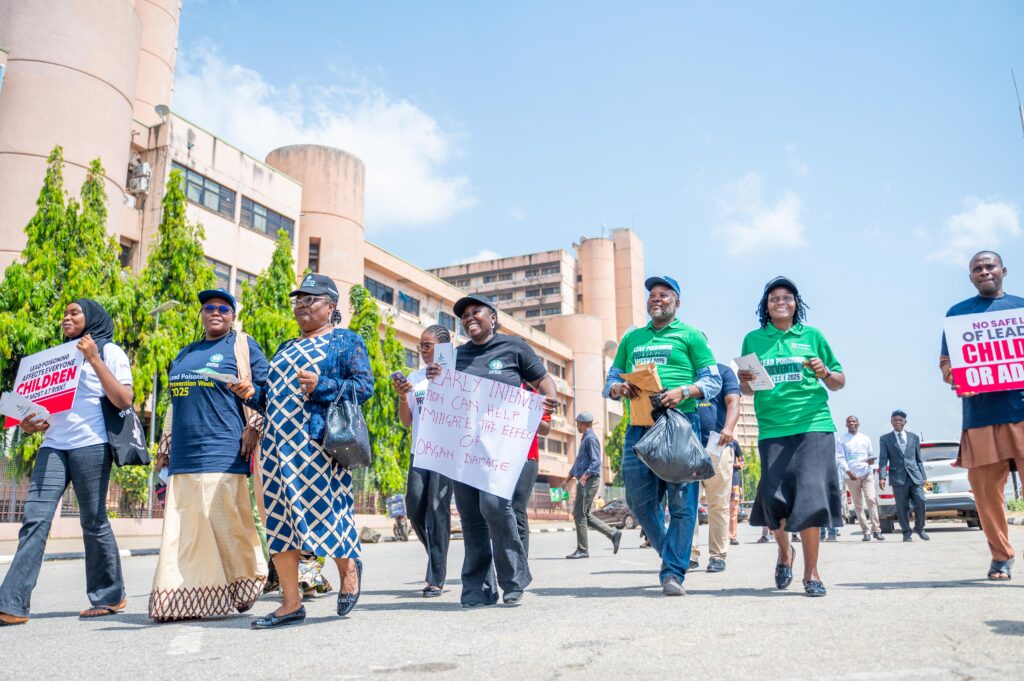
For our partners in Nigeria, this year’s International Lead Poisoning Prevention Week was an important opportunity to spread the word about this deadly health threat. Resolve to Save Lives (RTSL) supported activities led by the Federal Ministry of Environment (FMEnv) and the Federal Ministry of Health and Social Welfare (FMoH&SW) to mark the week, including […]
Association between timeliness of detection, notification and response and the magnitude, severity and duration of disease outbreaks: a retrospective review of 84 outbreaks in Uganda, 2017–2022
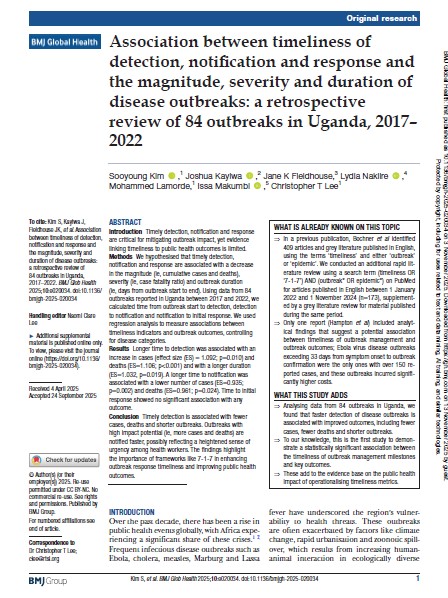
Timely detection, notification and response are critical to reducing the impact of outbreaks, yet evidence linking these factors to outcomes has been limited. In an analysis of 84 outbreaks reported in Uganda between 2017 and 2022, Resolve to Save Lives and partners found that delays in detection were strongly associated with higher numbers of cases […]
Detecting harmful lead in cosmetics in Nigeria
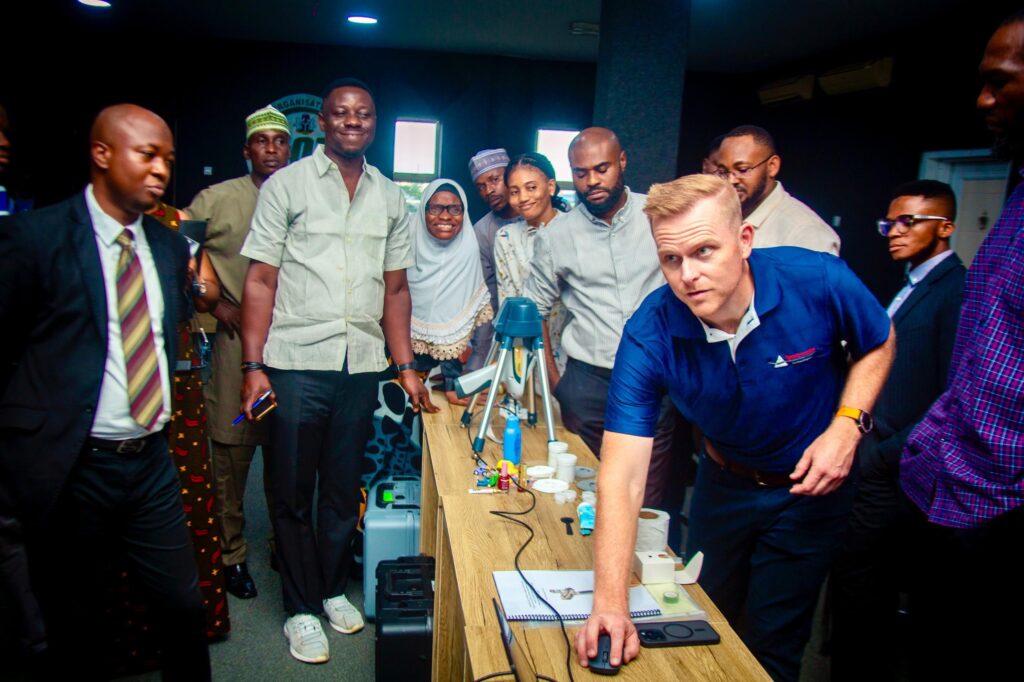
For countries committed to preventing lead poisoning, understanding how people are exposed to lead is an important early step. At a two-day workshop held in Lagos in November, Resolve to Save Lives (RTSL) partnered with the Standards Organisation of Nigeria (SON) to train 35 scientists and analysts—from the National Agency for Food and Drug Administration […]
Epidemics That Didn’t Happen: How Gabon stopped mpox with no deaths

Collaboration between public health agencies and risk communication and community engagement contained a local mpox outbreak in Gabon with no reported deaths.
Adoption and use of the 7-1-7 timeliness metrics for detection, notification, and early response actions to public health events: an observational study in Liberia, January 2024–June 2025
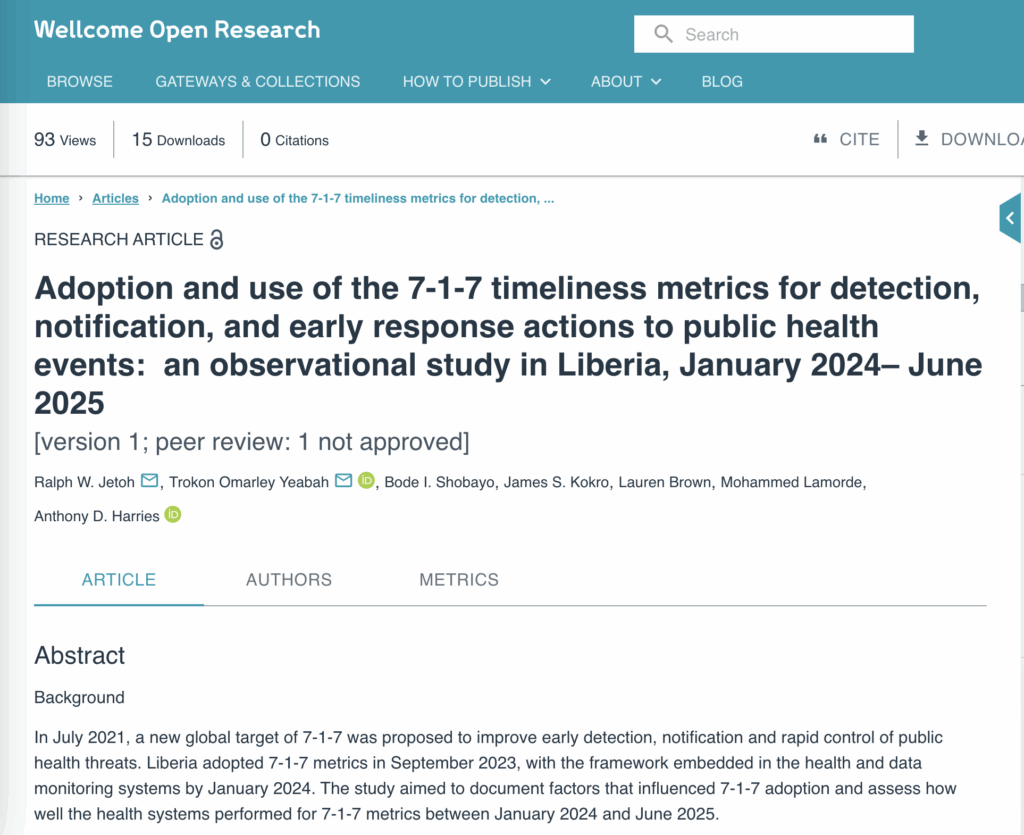
Wellcome Open Research article published on October 31, 2025 co-authored by Liberia and the 7-1-7 Alliance.
“Putting people first”: What we learned at ICPHC 2025
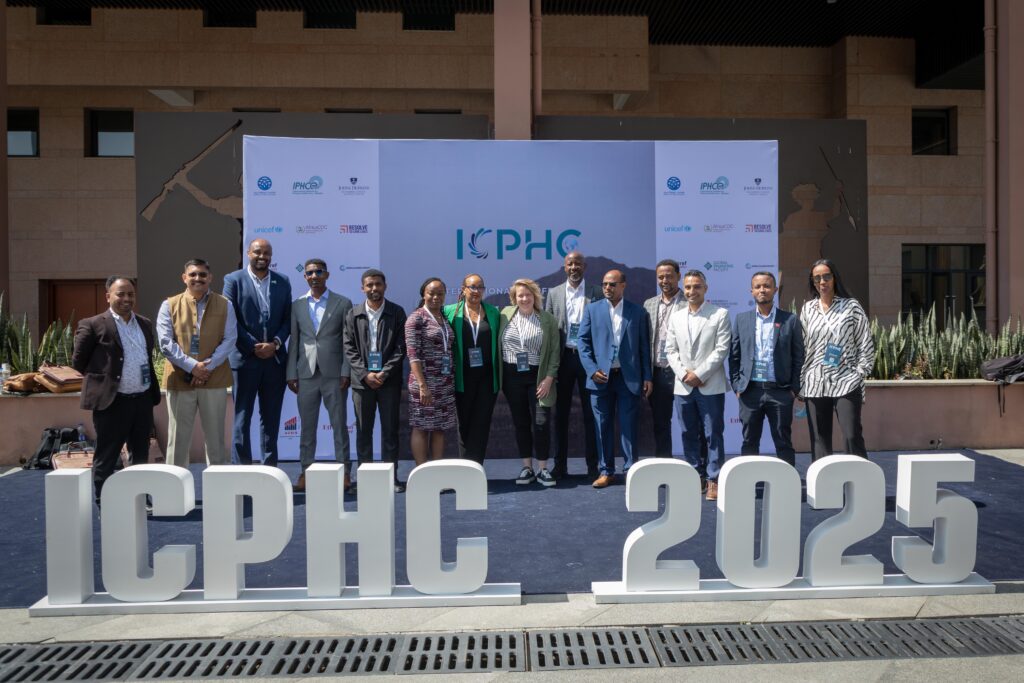
We were thrilled to join more than 700 global health leaders, policymakers, and practitioners at the 2025 International Primary Health Care Conference (ICPHC) in Addis Ababa, Ethiopia to explore how strong, people-centered PHC systems drive resilience, equity, and epidemic readiness. Throughout the five-day conference—which RTSL co-hosted— our 18-member delegation led and contributed to sessions that […]
New partnerships to prevent lead poisoning
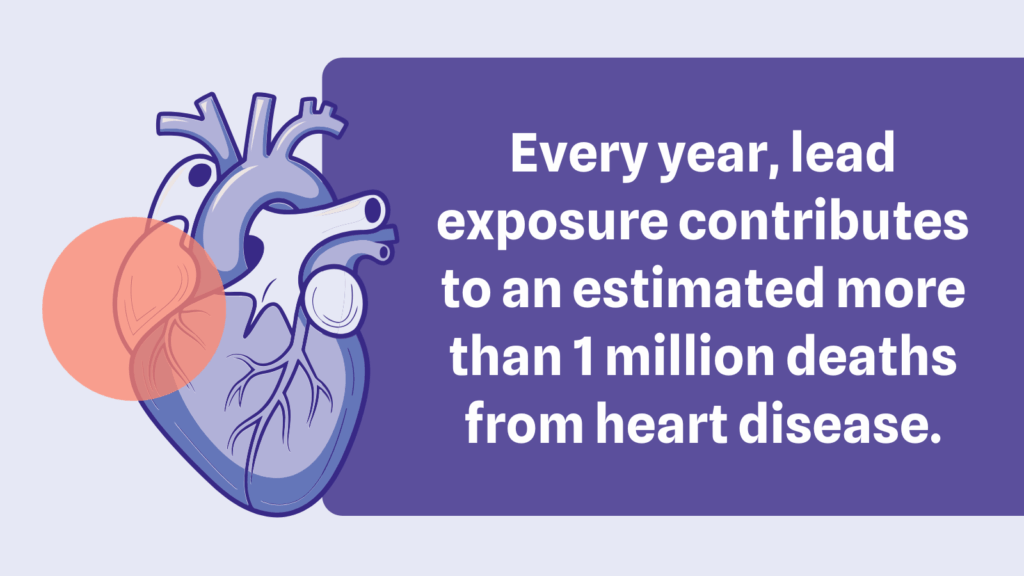
Did you know that every year, lead exposure contributes to an estimated more than 1 million deaths from heart disease? The overwhelming majority of these preventable deaths occur in low- and middle-income countries. With support from Open Philanthropy through the Lead Exposure Action Fund (LEAF), we are working alongside government and local partners in […]
Putting Nigeria’s trans fat elimination policy into action
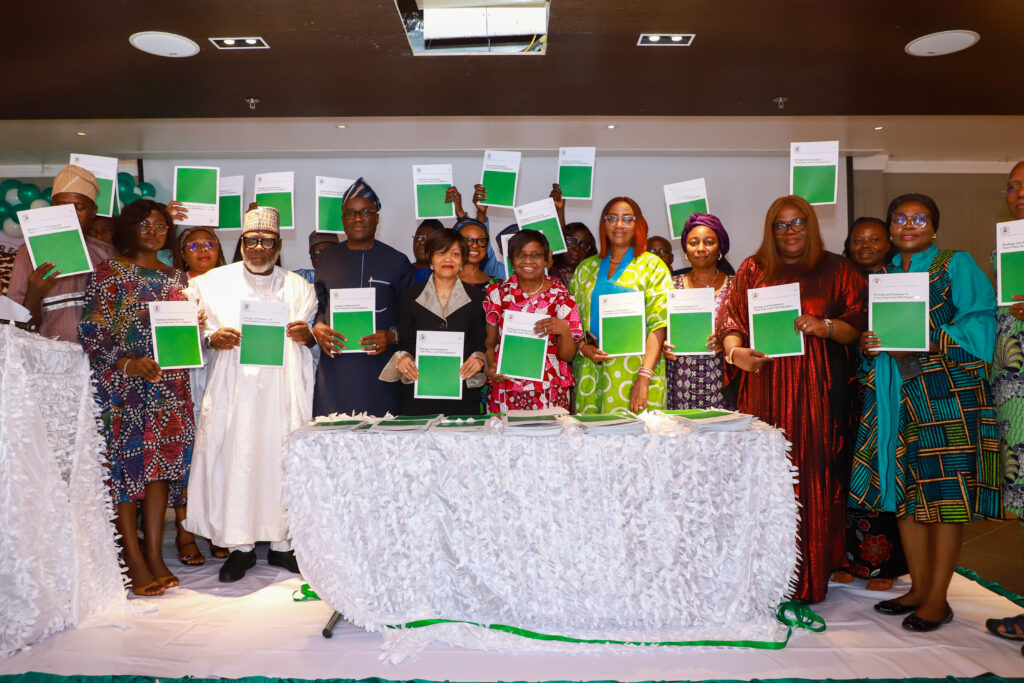
In 2023, Nigeria made history as the second African country to adopt a best-practice policy to eliminate industrially produced trans fats from the national food supply. Building on this milestone, on September 26, 2025, the National Agency for Food and Drug Administration and Control (NAFDAC), with support from Resolve to Save Lives (RTSL), launched a […]
Strengthening leadership for public health emergency management in Ethiopia
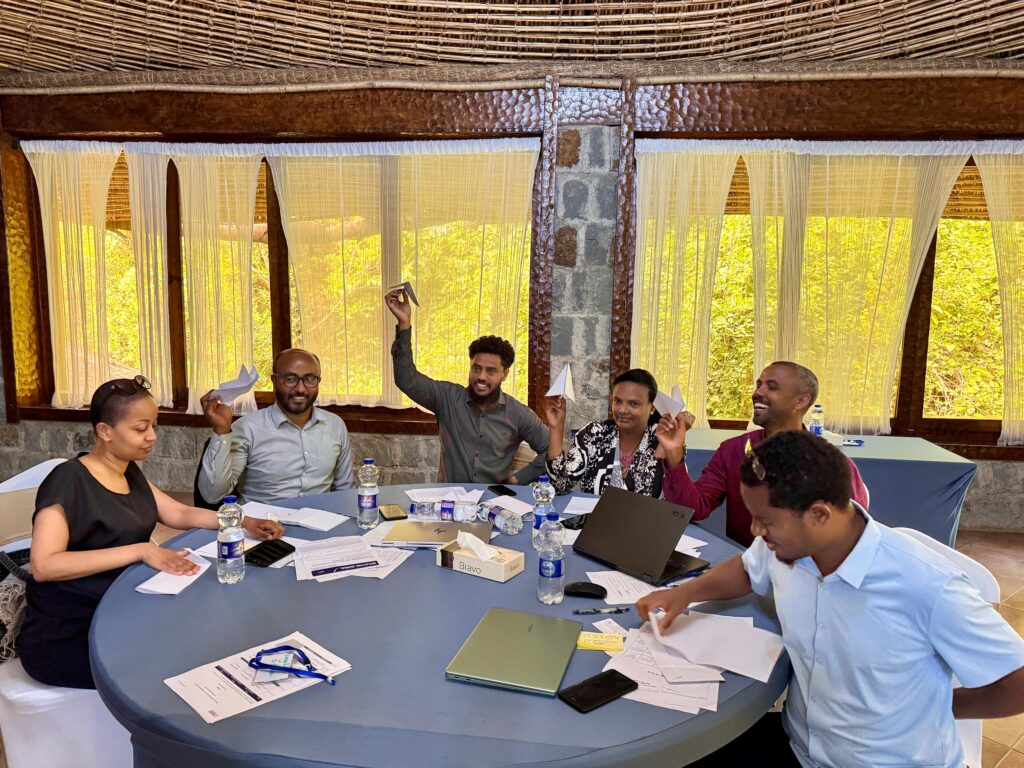
Through our Program Management for Epidemic Preparedness, Resolve to Save Lives (RTSL) partnered with the Ethiopian Public Health Institute (EPHI) to deliver a three-day workshop aimed at strengthening leadership capacities for managing public health emergencies. 21 directors and division heads from the Public Health Emergency Management (PHEM) wing participated, including those from the Preparedness, Response, […]
Nigeria advances national policy to eliminate lead and toxic substances from cosmetics
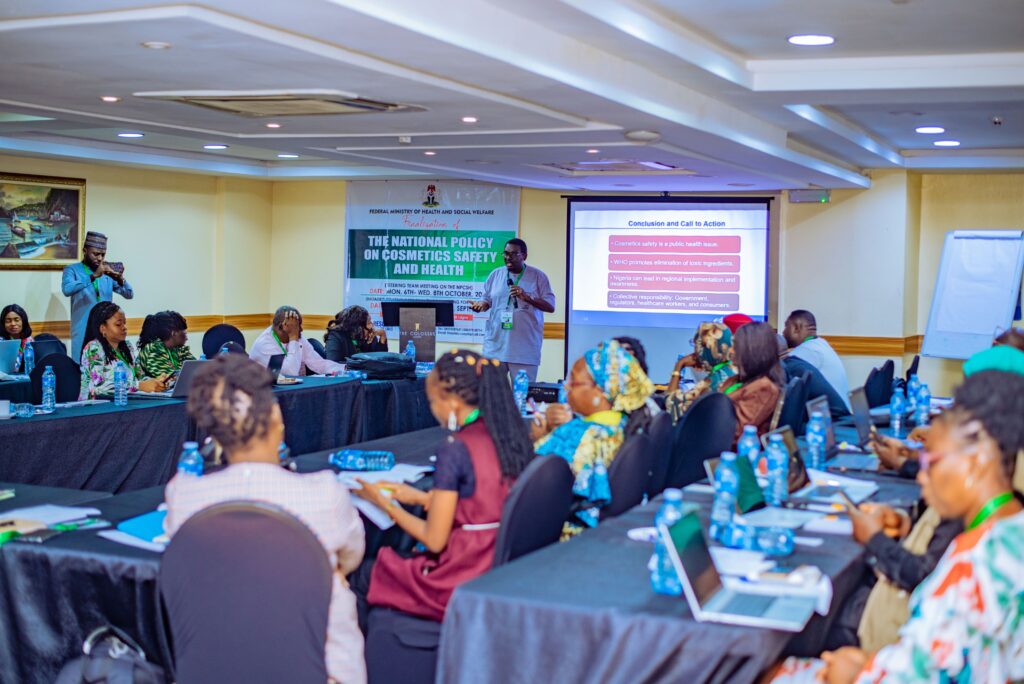
RTSL partnered with Nigeria’s Federal Ministry of Health to develop the National Policy on Cosmetic Safety and Health, reducing exposure to toxic substances like lead in cosmetic products.
RTSL and NCDC partner to strengthen Nigeria’s epidemiological reporting and One Health Lassa Fever surveillance
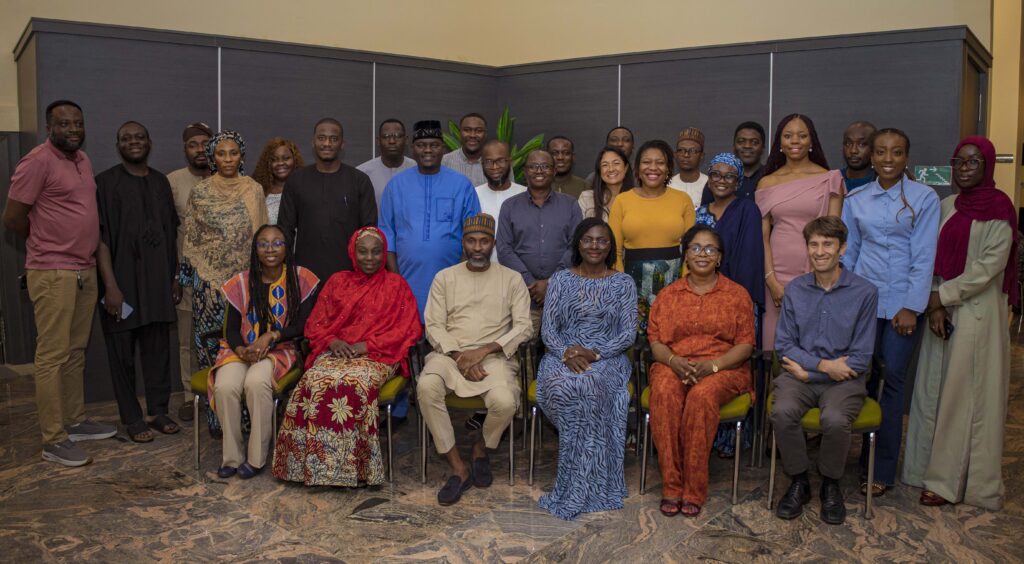
As part of efforts to strengthen data-driven epidemic intelligence and improve reporting efficiency in Nigeria, Resolve to Save Lives (RTSL) partnered with the Nigeria Centre for Disease Control and Prevention (NCDC) to host a workshop focused on enhancing two of Nigeria’s key public health surveillance products: the Weekly Epidemiological Report and the Lassa Fever Situation […]
Ethiopia’s new National Action Plan for Health Security and National One Health Strategic Plan take center stage
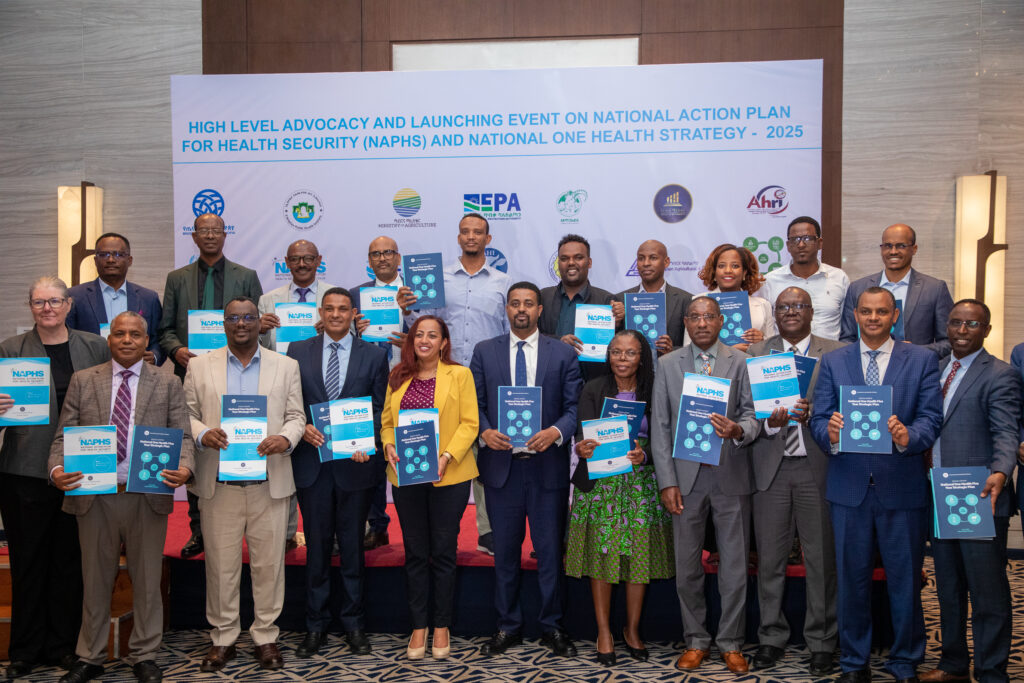
In a significant step toward a more resilient, multisectoral health system capable of preventing, detecting, and responding effectively to health threats, Ethiopia launched two national frameworks: the National Action Plan for Health Security (2024/25–2028/29) and the National One Health Strategic Plan (2025–2029). The new National Action Plan for Health Security (NAPHS)—the country’s second— builds on […]
Progress in epidemic-ready primary health: early pilot results from four African countries (Ethiopia, Nigeria, Sierra Leone and Uganda), December 2023-October 2024
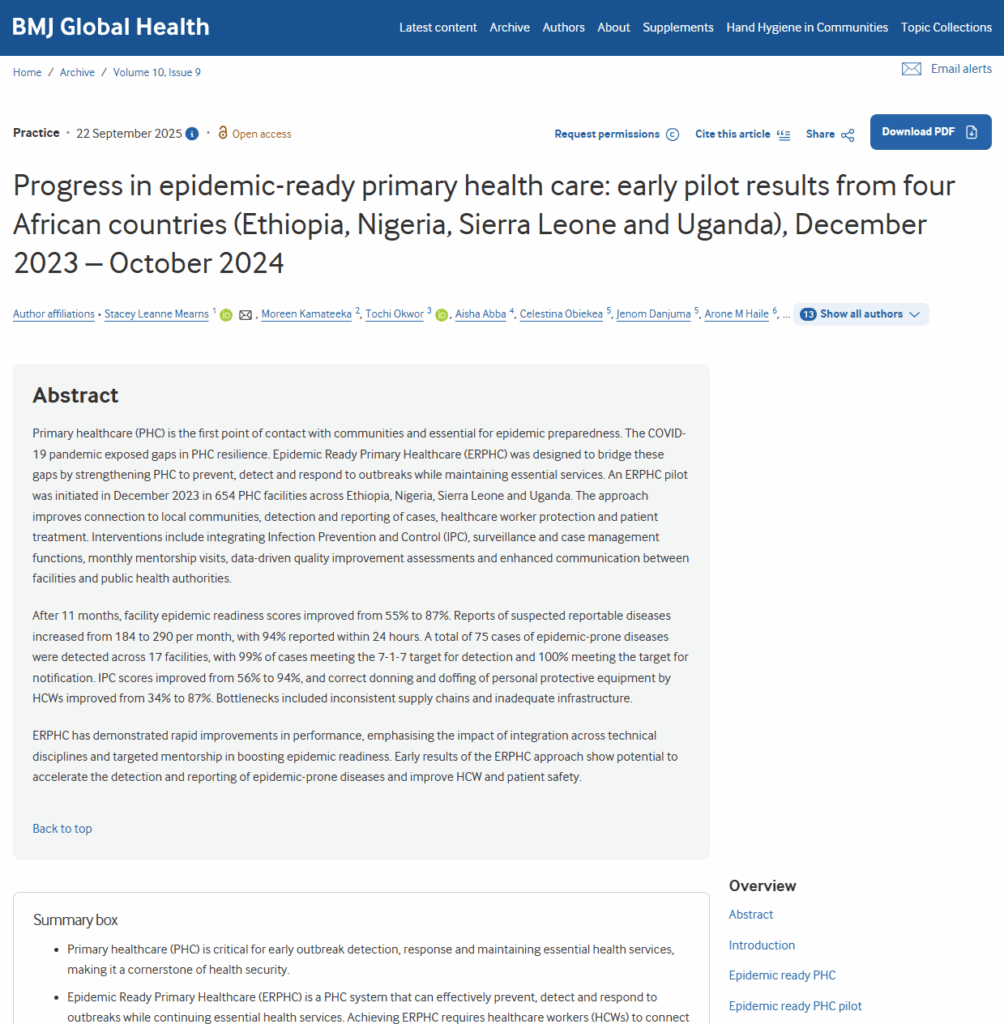
Primary health care facilities are the first point of contact when community members fall ill. They are also essential to epidemic preparedness. Despite their critical importance, many facilities lack the capacity to prevent, detect and respond to outbreaks while maintaining essential services. To address these gaps and bolster facility resilience, we launched an Epidemic Ready […]
Coding, capstones, and collaboration: colleagues learn critical skills at RTSL and Applied Epi’s training
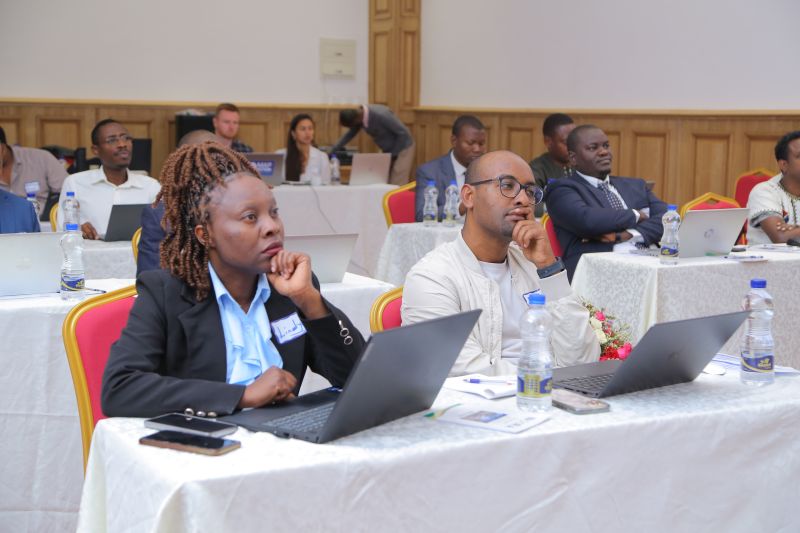
RTSL and Applied Epi co-hosted a five-day collaborative surveillance training in Ethiopia for data analysts to learn advanced coding skills for surveillance data analysis.
Preparing for policy in action: Nigeria builds capacity to eliminate trans fat and protect heart health
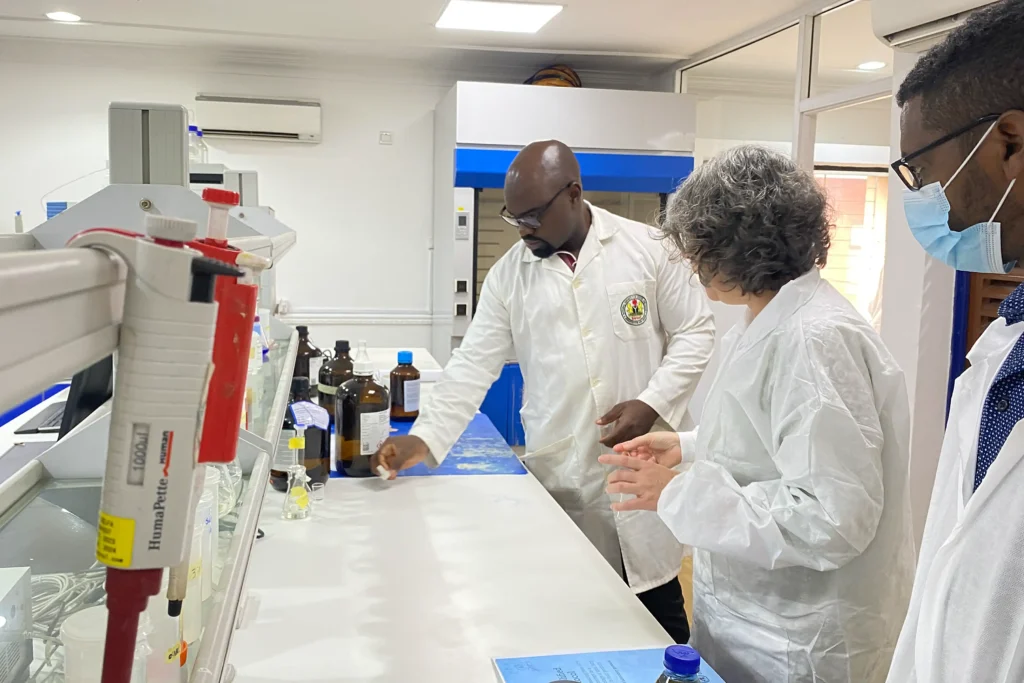
Nigeria’s 2023 trans fat ban was a huge step forward for heart health, but a national assessment revealed challenges for implementation and enforcement: gaps in laboratory capacity and a lack of a standard protocol for assessing trans fat content in foods.
Legal reforms to strengthen health security in Nigeria’s Cross River State
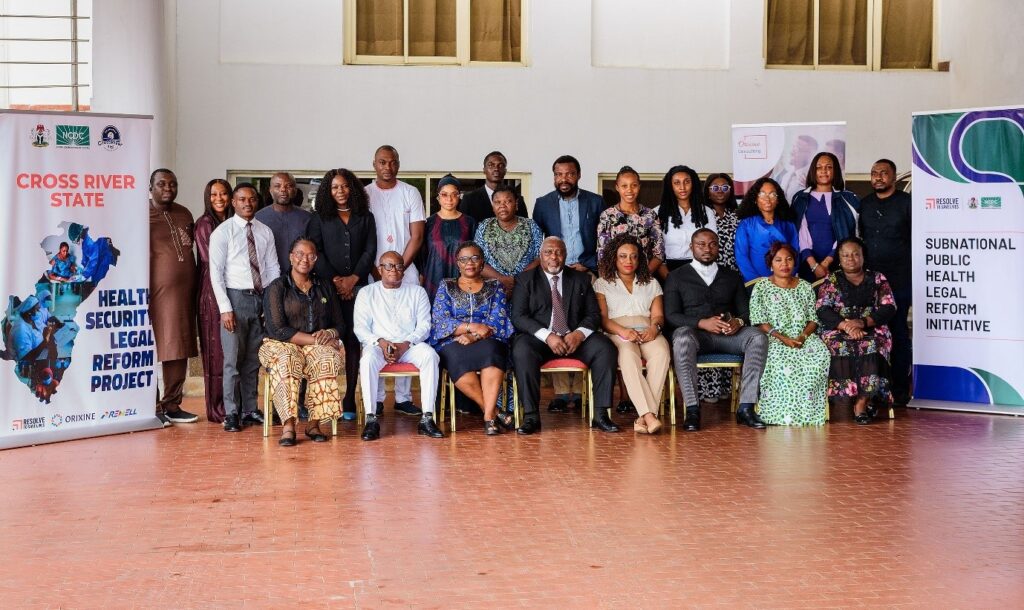
Resolve to Save Lives and partners are supporting Cross River State to draft new public health and animal health laws that strengthen surveillance, response, and coordination for a One Health approach. These reforms will equip the state to act quickly and protect communities during health emergencies.
To stop state-level outbreaks, Nigeria is integrating 7-1-7 in its national emergency management system
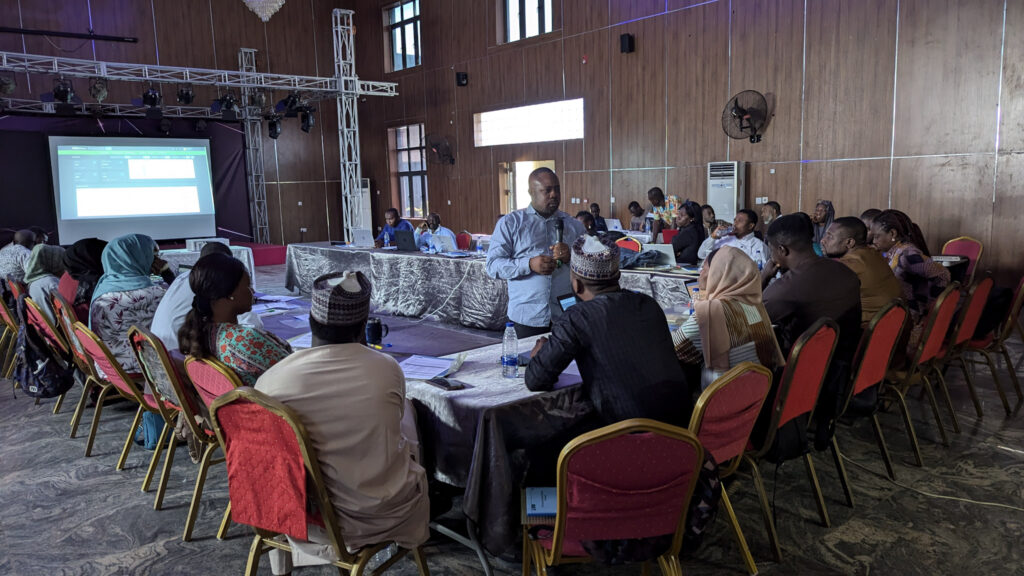
Nigeria is integrating the 7-1-7 target into its SITAware system to detect and respond to outbreaks faster—empowering frontline workers and setting a regional standard for epidemic preparedness.
Grâce à un outil simple, la RDC parvient à une gestion plus efficace des fonds mobilisés face aux épidémies
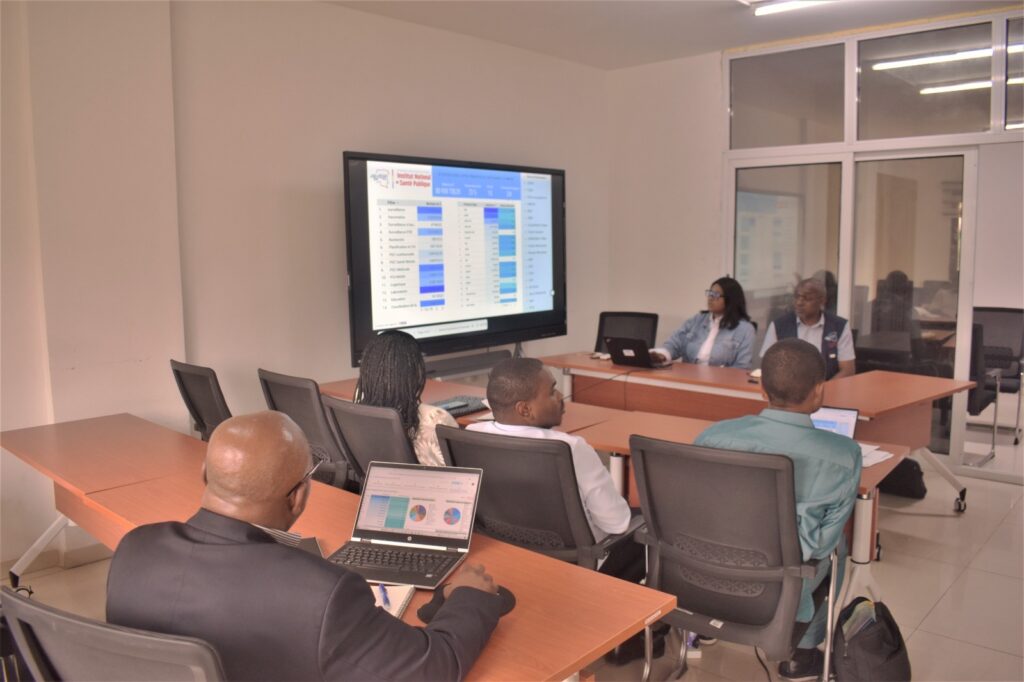
En collaboration avec nos partenaires en République démocratique du Congo, nous avons créé un outil qui permet d’accéder à des informations essentielles sur le financement et de garantir que le financement répond aux besoins du pays.
With a simple tool, DRC is more effectively managing outbreak funds

Together with our partners in the Democratic Republic of the Congo, we built a tool that unlocks critical financing insights—and makes sure funding meets the nation’s needs.
RTSL Recognized by Ethiopia’s Ministry of Health for Advancing Scalable Health Innovations
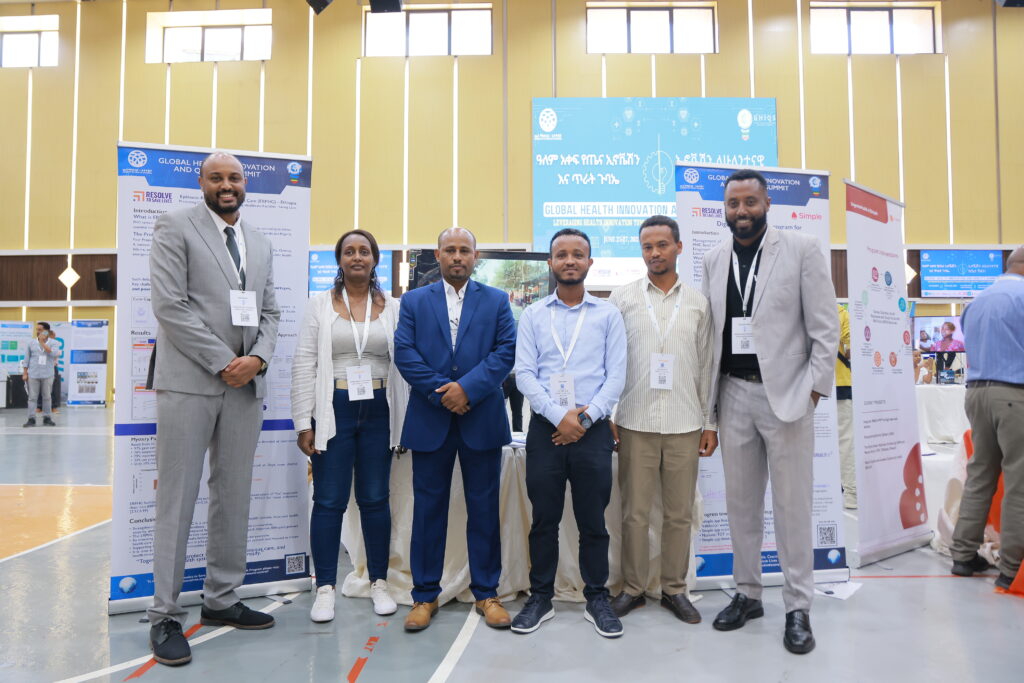
At the Global Health Innovation and Quality Summit in Addis Ababa, Ethiopia’s Ministry of Health recognized Resolve to Save Lives for its impactful support in strengthening the country’s health system. The honor highlights RTSL’s commitment to scalable, evidence-based solutions that improve care and save lives.
New podcast episode: Lessons from the Field – Hypertension Care in Ethiopia
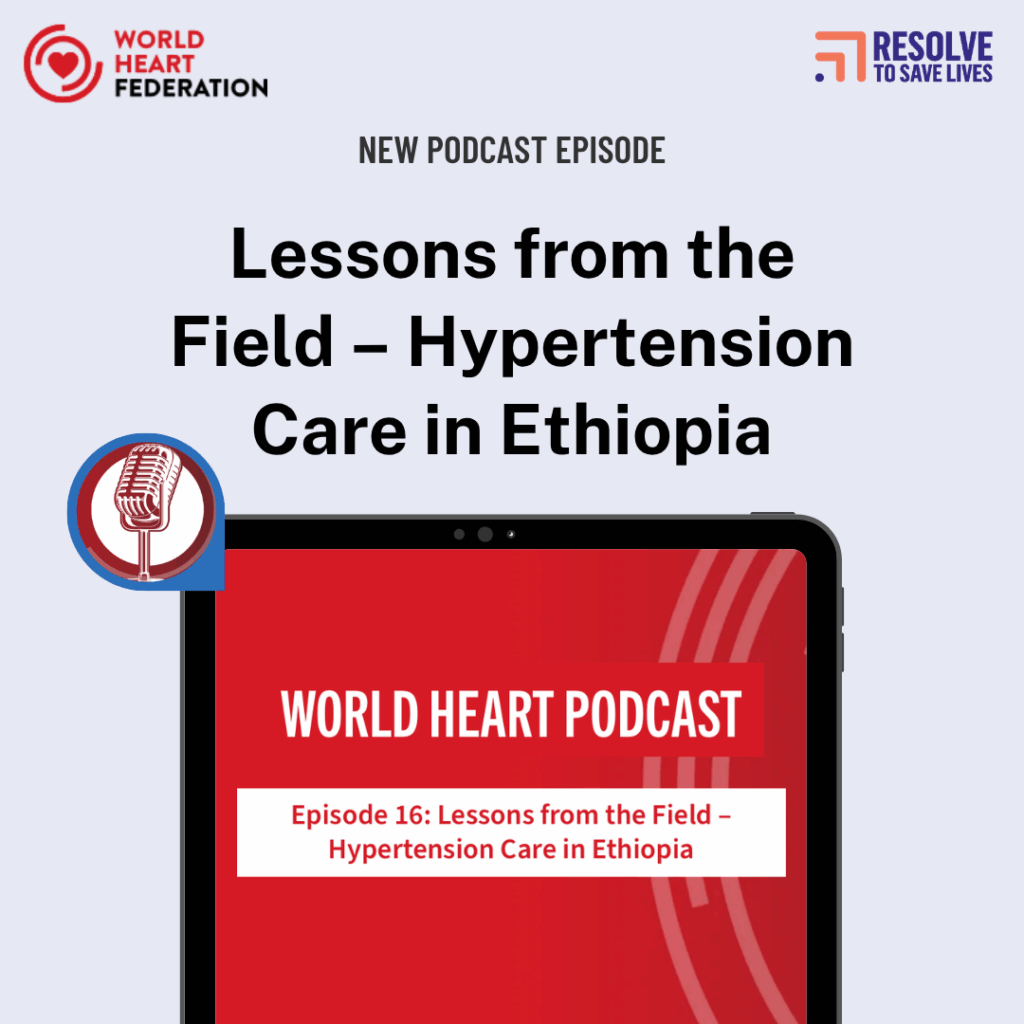
This World Heart episode shares how research in Ethiopia improved hypertension care and inspired policy change, featuring the new Lessons from the Field series in Global Heart.
Babatunde Fashola Joins Resolve to Save Lives Nigeria’s Board of Directors
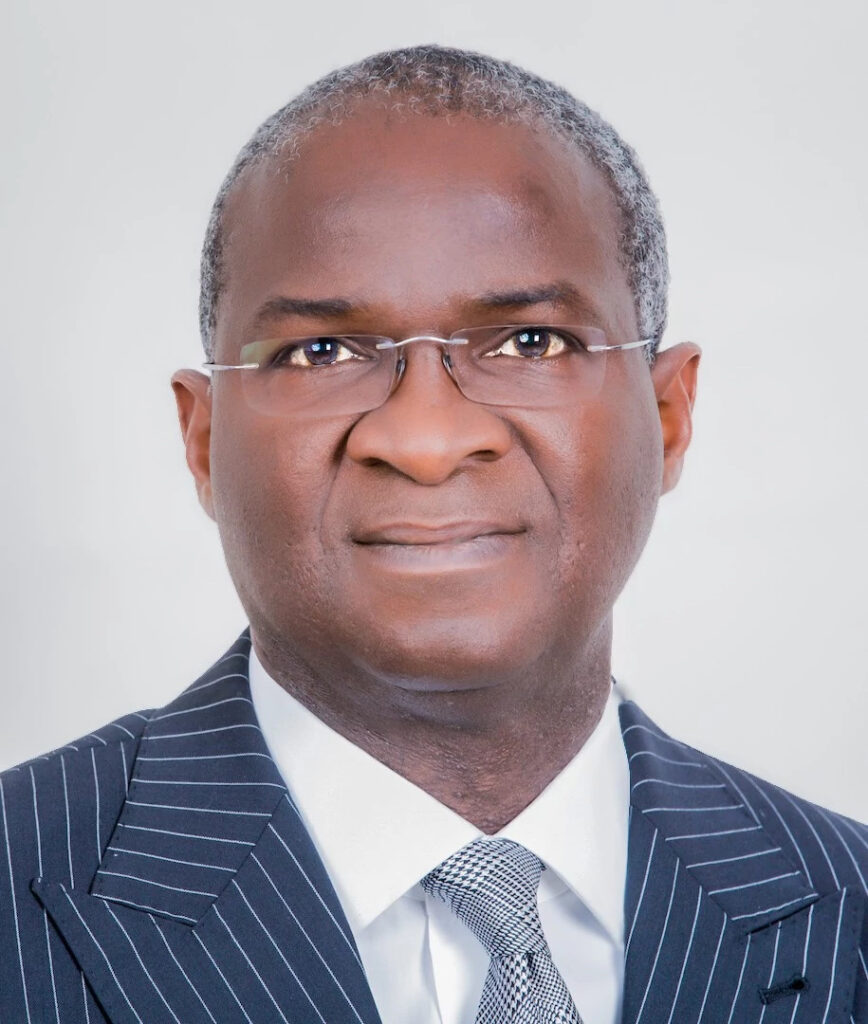
JULY 18, 2025 (ABUJA, NIGERIA) — Today, Resolve to Save Lives Nigeria (RTSL Nigeria) announced the appointment of Mr. Babatunde Raji Fashola, SAN, a seasoned legal practitioner and public official, to the RTSL Nigeria Board of Directors. Resolve to Save Lives opened an office in Abuja in 2022 to strengthen partnerships for cardiovascular health and […]
How event-based surveillance is saving lives across Africa
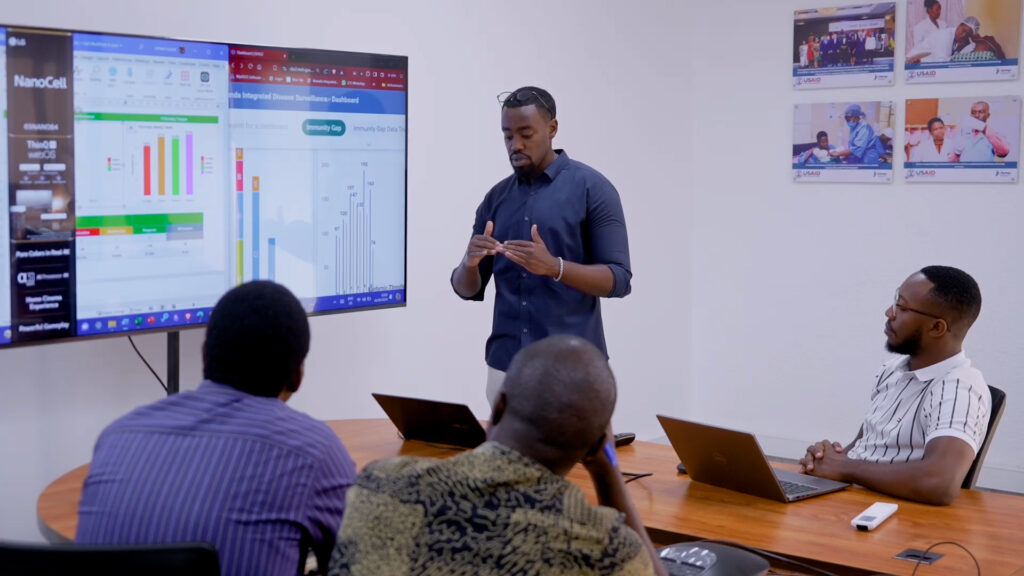
We partnered with National Public Health Institutes in five African countries to detect outbreaks faster using early warning signals.
Advancing subnational health security through legal reform in Nigeria
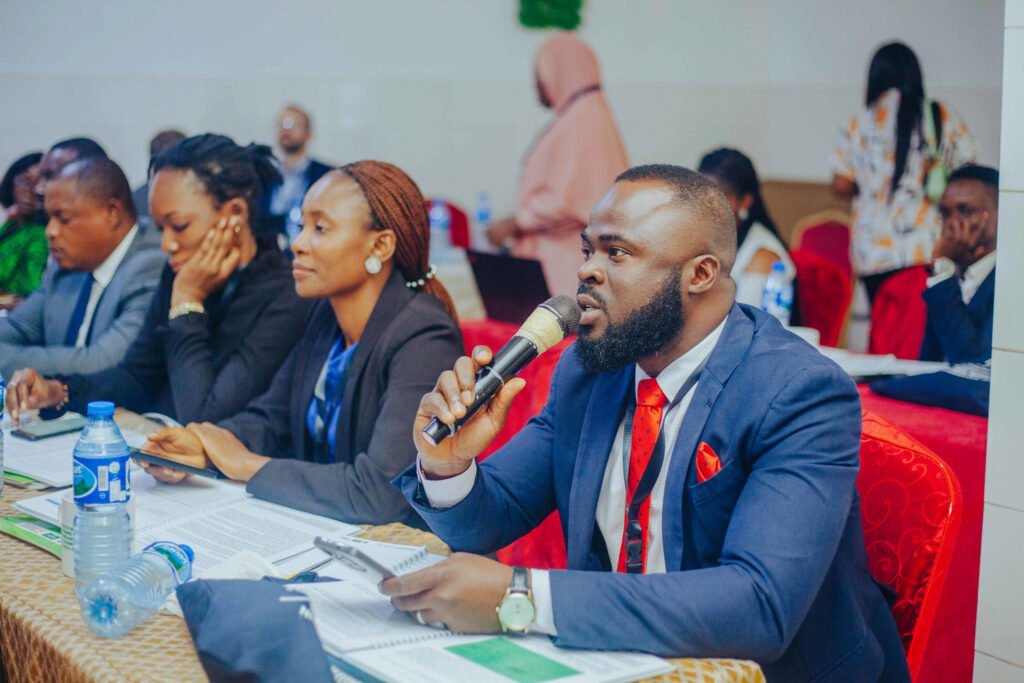
We spoke with Emem Udoh, a senior legal advisor at Resolve to Save Lives, to find out how his team is using state-level legal reforms to keep Nigeria safe from public health threats.
Health security leaders from six countries scale their skills at the PMEP Connect regional training in Ethiopia
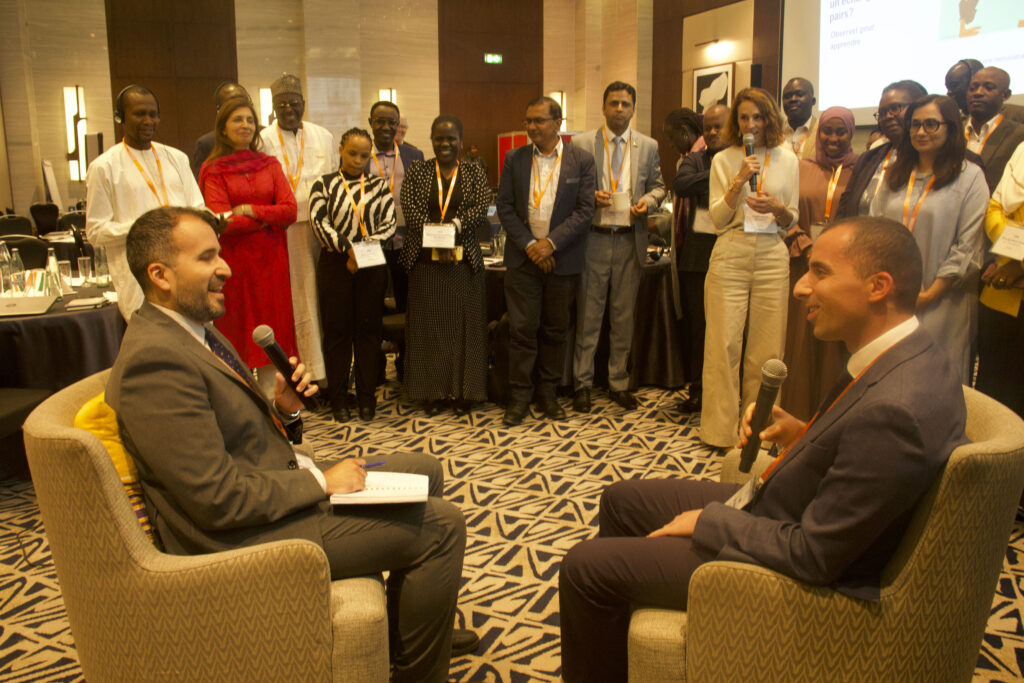
From June 16–20, 34 health leaders from six countries joined a PMEP training in Ethiopia to strengthen epidemic preparedness. Supported by WHO and Africa CDC, the workshop focused on financing, stakeholder engagement, and strategic planning to boost national health security.
Activating leadership to strengthen Nigeria’s health security
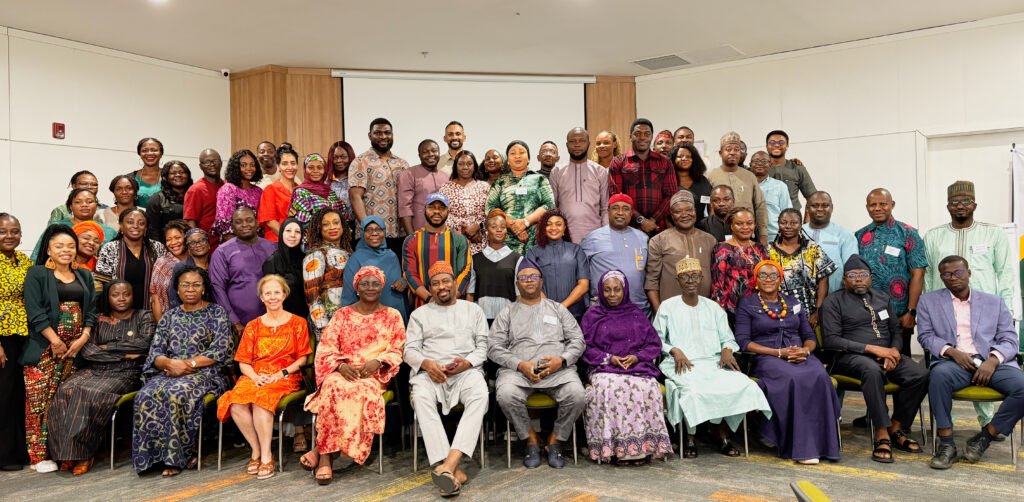
Leadership is an act, not just a position. Nigeria’s health security leaders join PMEP, our learning laboratory for global epidemic prevention management.
Event: Protecting one billion hearts at the 78th World Health Assembly
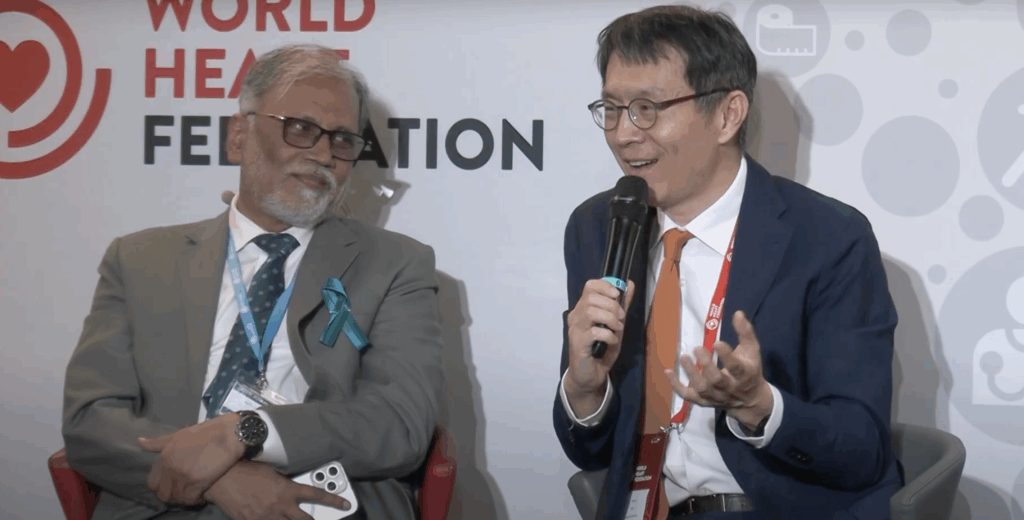
Highlighting the importance of access to medicines to control high blood pressure and the strategies needed to do it.
How fake patients are helping real health facilities prevent epidemics
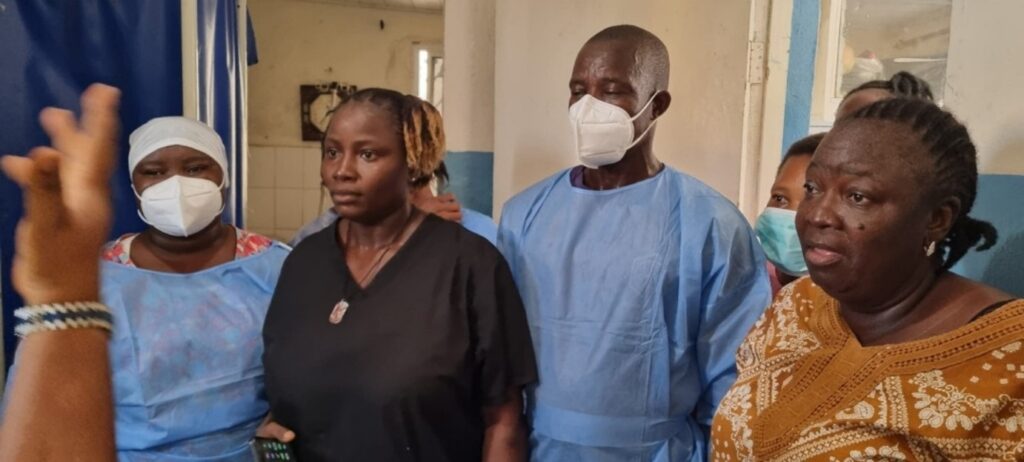
We tested the epidemic readiness of primary health facilities in four countries using “mystery patients”.
Epidemics that Didn’t Happen: How South Sudan stopped a cholera outbreak with no reported deaths

South Sudan successfully contained a cholera outbreak in Bor with no reported deaths by using the 7-1-7 target and rapid response protocols.
In Nigeria, this pilot program is making blood pressure treatment affordable for all
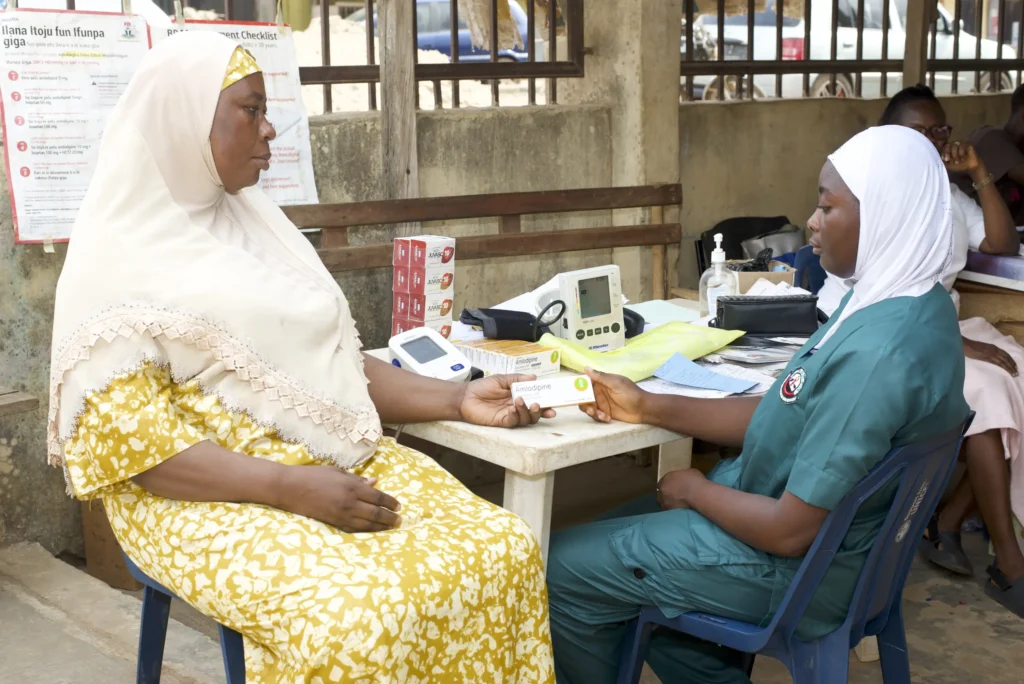
Streamlining makes quality treatment possible at a price patients can afford.